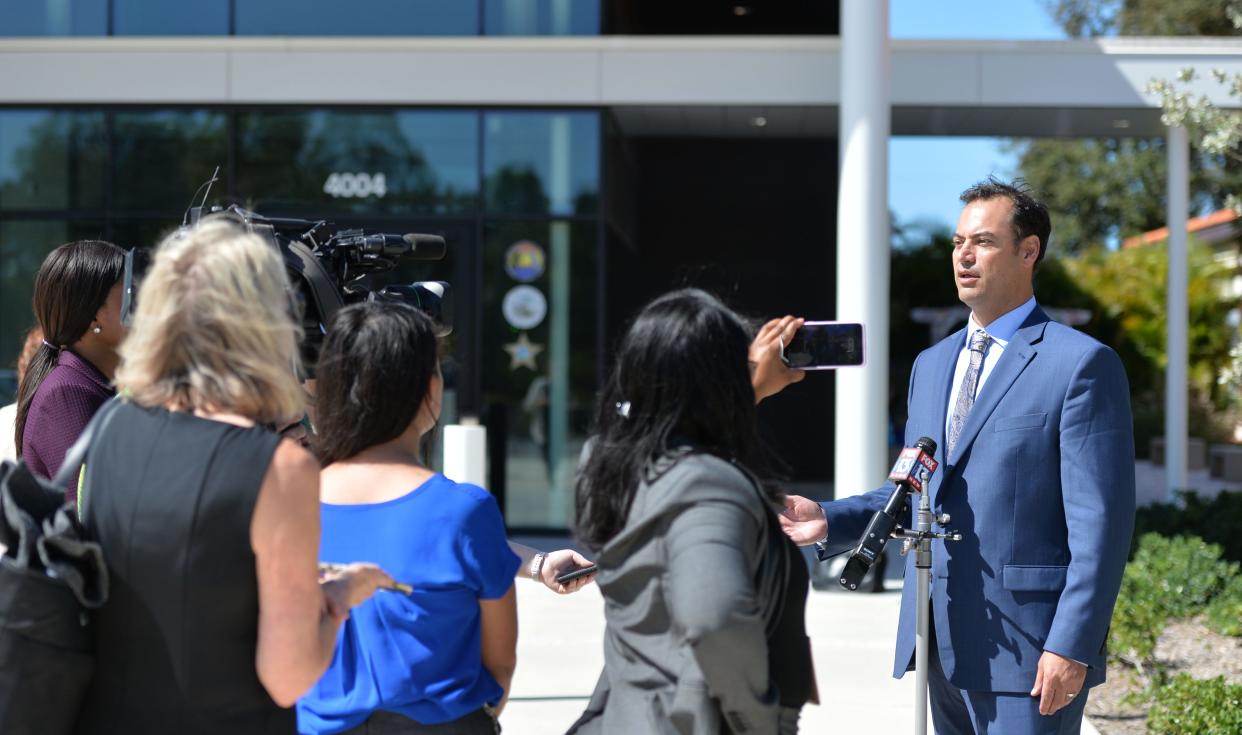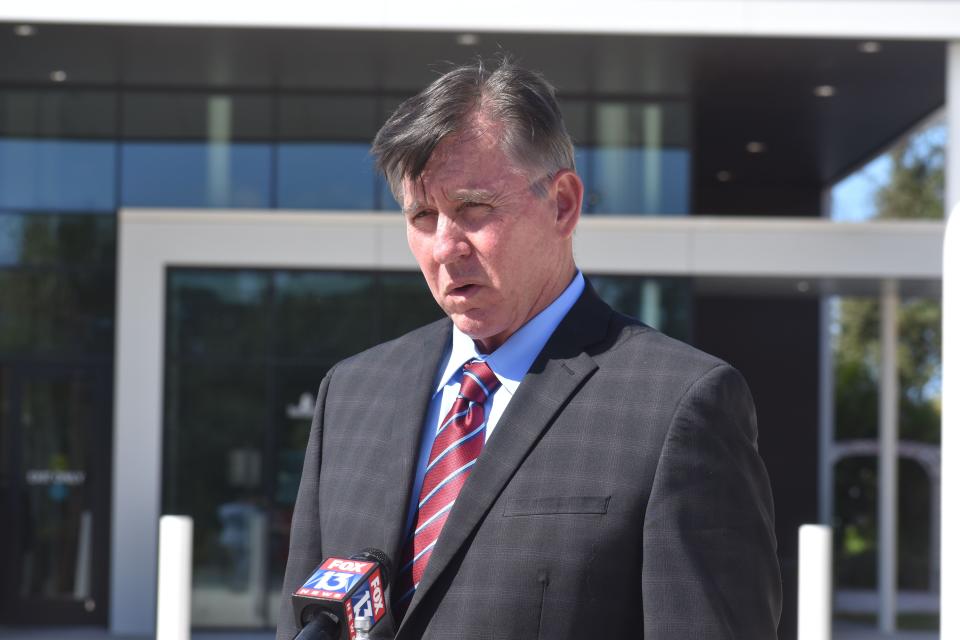'Take Care of Maya' trial: Attorneys for both sides reflect as case nears an end

- Oops!Something went wrong.Please try again later.
Attorneys for Johns Hopkins All Children's Hospital and the Venice family suing the hospital for $220 million reacted on the trial thus far as the case inches toward an end.
Ethen Shapiro, attorney for the hospital, felt good about how the hospital laid out their case, stating it showed the jury that Maya Kowalski made "tremendous strides" after her more than three-month stay in part thanks to the hospital's efforts of weaning her off all the medications she had been on when she entered in October 2016.
"The evidence that we’ve been able to put on through our defense case has shown that Maya came to us in a horrible condition on a number of dangerous and unnecessary drugs — we were able to wean her off those drugs and get her to a place where she can be like you see her today, walking in and out of court, going to homecoming and living a more normal teenage life," Shapiro said.
Keep reading: As 'Take Care of Maya' trial nears conclusion, attorneys weigh in on complicated trial
More trial coverage: Kowalskis testify about personal, economic impact for damages
The Kowalski family sued the St. Petersburg-based hospital in 2018 for complaints of battery, intentional infliction of emotional distress, false imprisonment, and fraudulent billing, among others.
The family claims it was the hospital’s actions that led Beata Kowalski to take her life after allegations of child abuse were reported and an investigation by the Florida Department of Children and Families led to a court order separating Maya from her family, specifically from her mother.
In October 2016, the family took then-10-year-old Maya Kowalski to All Children’s Hospital due to severe stomach pain which they believed was a relapse of her Complex Regional Pain Syndrome, a disorder that impairs the central nervous system and heightens pain sensations.
While at the hospital, staff began to suspect possible child abuse, stating that Maya displayed inconsistencies in her behavior and symptoms.
The defense has from the beginning said that the reason they wanted to take this case to court was because of the "chilling effect" it has had on mandatory reporting not only in Florida but across the country.
Shapiro hopes that mandatory reporters watching this case see that the hospital is willing to stick up for them and that they can continue to perform their duties "on behalf of abused and neglected children."
"The jury has been engaged. They’ve been asking questions," Shapiro said. "We hope at the end of their deliberations that they see the case as we see it as an important case for mandatory reporting and one where they ultimately find that All Children’s provided the necessary and compassionate care.”
Shapiro foreshadowed that during closing arguments the defense will walk the jury through a timeline to help put into perspective all of the facts and testimony that was presented so they can consider the totality of care given to Maya.
At the close of the defense's case, the attorneys showed snippets of video depositions of Maya Kowalski saying she was doing better, as well as presented the jury with photographs of Maya dressed up for homecoming this year.
Family rebuts hospital's defense

Greg Anderson, the family's attorney, rebuffed the defense's narrative that Maya is doing much better.
“There’s a base level of pain, but when you’re in that much pain at different times it becomes, it's not as noticeable as a normal person, really," Anderson said. "You develop a high tolerance for it. CRPS patients always have a little bit of pain, but it does come and go, and this is one of the elusive and frankly frustrating things about the disease."
Maya has testified before the jury over and over again to that point, Anderson said. In Maya's rebuttal testimony later Wednesday afternoon, she also pointed that out.
The 17-year-old told the jury that she had been in so much pain the day of homecoming that she went with her boyfriend for an hour so she wouldn't disappoint him before returning home.
Anderson said that out of the five depositions that Maya gave, the defense chose snippets to portray Maya's life after her hospitalization as being great, when in reality Maya "almost died after one relapse" which sent her to Arnold Palmer's Children's Hospital in Orlando where she had a feeding tube placed because of the amount of weight she'd lost.
Kowalski family attorney: Trial is about parents' rights to child's medical treatment
'Take Care of Maya' trial: Dr. Sally Smith testifies, as hospital cites 'chilling effect'
For the experienced trial attorney, this case has become a quest, dominating every facet of his life, his wife's life, and his firm, as well as his clients' lives.
While Anderson acknowledged that the defense had a good couple of liability experts, he felt the defense's case supported the Kowalskis' side.
With closing arguments around the corner and jury deliberations to follow, Anderson hopes those tuning in realize just how "unbelievably difficult" the entire case has been for the Kowalskis.
“The fact that they stood up for their rights to treat their own child with the best knowledge they could, with every bit of information they could, and they made the right choices," Anderson said. "And so, the things that happened to them at Johns Hopkins are beyond belief, absolutely beyond belief, but we’ve proved them over and over again."
Gabriela Szymanowska covers the legal system for the Herald-Tribune in partnership with Report for America. You can support her work with a tax-deductible donation to Report for America. Contact Gabriela Szymanowska at gszymanowska@gannett.com, or on Twitter.
This article originally appeared on Sarasota Herald-Tribune: 'Take Care of Maya' trial: Attorneys for family and hospital reflect

